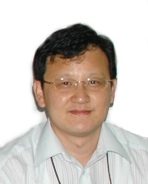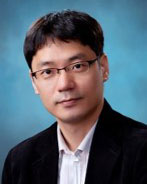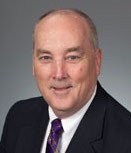TEACHING WORKSHOP
Collaborative Approaches in Physiology Teaching–Learning–Assessment
- Date & Time : November 1, 2023, 09:10-12:50
- Place: 306 (A), 320, EXCO, Daegu, Korea
Invitation Message
It is with great pride and pleasure that we invite you to attend the FAOPS2023 Teaching Workshop as a satellite event of the 10th Congress of the Federation of the Asian and Oceanian Physiological Societies on November 1, 2023 at the Exhibition & Convention Center in Daegu, a city in the South Korea.
Physiology is an integrative science that deals with the ‘logic of life’ and provides a quantitative understanding of how the structure and function of cells, tissues, and organs explain the complex behavior of living organisms. Historically, physiologists have contributed greatly to the advancement of medicine by elucidating the mechanisms of various physiological phenomena, and as evidence of this, there is a Nobel Prize in Physiology or Medicine rather than a Nobel Prize in Medicine. However, in the last 50 years, the focus has gradually shifted to molecular biology, as molecular biology has achieved remarkable success at the gene and protein level. This has had an impact on medical education, with the result that the importance of physiology has been increasingly overlooked. To overcome this challenge, changes are needed in the research and teaching of physiology. We need to shift our attention from the physiology of the human body to the pathophysiology of the human body, and on the pedagogical side, we need to find ways to engage students and assess their academic performance in real time.
The theme of this workshop is "Collaborative Approaches in Physiology Teaching–Learning–Assessment". We look forward to this workshop as an opportunity to find a new path forward in this time of crisis in physiology education. We look forward to your understanding and support for this workshop.
-

- Jae Boum Youm, MD, PhD
-
College of Medicine, Inje University, Korea
Co-chair of Education Committee, FAOPS 2023
-

- Hyun Goo Woo, MD, PhD
-
Ajou University School of Medicine
Co-chair of Education Committee, FAOPS 2023
Workshop Program
Plenary Lecture: 09:10-09:50

- Robert G. Carroll (Brody School of Medicine, USA)
- “The intentional incorporation of physiology and other basic sciences into the clinical clerkship”
Workshop 1 (10:00-12:50)
“Constructing inclusive student centered learning sessions (ISCLS) in Physiology : through the lens of Universal Design”
- Organizer : Sarmishtha Ghosh (Bhaikaka University, India)
- Resource persons : Dr Sarmishtha Ghosh and any other interested faculty for Local Organizers
- Program details
1. Icebreaking by Sarmishtha (10 min)
2. Introduction and Background by Sarmishtha, Puja, Minal (20 min)
3. Divide into small groups/break-out rooms (5 min)
4. Groups work on task by Sarmishtha, Puja, Minal (60 min)
5. Group presentation, Wrap up and Evaluation by Sarmishtha, Puja, Minal (25 min)
-
Synopsis :
21st century teaching learning activities have undergone a paradigm shift with the advent of Corona virus pandemic. Learners with different levels of learning abilities and interest struggled to shift from face to face to online learning environment. Keeping in mind the sudden critical situation as well as any such future events and the “beginning of new normal”, educators need to prepare a learner profile of their students, and develop a curriculum, designed to accommodate all kinds of learners, providing them with multiple means for engagement, representation and expression. Gen Z students have quick and easy access to massive amounts of information, so providing them with information in the traditional manner is not essential. It is however, more important to find out whether they are able to manage those information, develop opinions and a sense of purpose from the same. In order to make them work ready professionals who can survive in the ever-demanding new environment, educators need to nurture the skills of adaptability, cooperativity and creative thinking, thus instructional activities need to be developed accordingly. This workshop aims to discuss the methods to prepare learner profile, design small group activities keeping in mind the three primary brain networks of why, what and how of learning and finally recommend means of evaluating such activities. The workshop is intended for educators of all levels as well as postgraduate students who aspire to be teachers.
Workshop 2: 10:00-12:50
“How to Choose “Must Know” Lecture Topics in Medical Physiology”
- Organizer : Muhammad Irfannuddin (Universitas Sriwijaya, Indonesia)
- Resource persons : Muhammad Irfannuddin, Robert G Carroll and any other interested faculty for Local Organizers
- Program details
1. Icebreaking, Introduction and Background by M Irfannuddin (15 min)
2. The role of LO in buildings competencies by R Carroll (15 min)
3. Divide into small break-out groups (5 min)
4. Groups work on task by M Irfannuddin and local committee (45 min)
5. Report, Summary, Evaluation by M Irfannuddin, R Carroll (20 min)
6. Take home message (10 min) -
Synopsis :
Learning objectives of physiology alone are not suitable for building the competence of medical students. In most physiology departments, some lecturers are PhD’s in physiology, while others are medical doctors. As instructors rely on their backgrounds, the basic science PhD’s may not bridge to clinical objectives, while the clinical MD’s may not bridge to mechanistic objectives. Learning objectives have been made by physiological societies. These often are designed for general use and may be too broad to build to medical competencies. To be effective, instructors must also look at competency guidelines for medical students, for example, The Standar Kompensi Medical Dokter Indonesia. Recommended methods of student learning tend to be active and student-centered, rather than passive and teacher-centered. Basic scientists and clinicians must sit with colleagues in the medical education unit to decide what is “must know” and what is “nice-to-know” content. The objective of this workshop is to facilitate participants how to use clinical cases to identify “must know” physiology content in both the basic and clinical sciences.
Members of FAOPS Education Committee (2021-2023)
| Name | Affiliated | Country |
|---|---|---|
| Ali Reza Asgari, PhD | Aja University of Medical Sciences | Tehran, Iran |
| Mangala Gunatilake, PhD | University of Colombo | Colombo, Sri Lanka |
| Noriyuki Koibuchi, MD, PhD (Chair) | Gunma University | Gunma, Japan |
| Zi-Qiang Luo, PhD | Central South University, | Changsha, Hunan, P.R. China |
| Enoch Perimal MSc, PhD, FIBMS | Curtin University | Perth, Australia |
| Esmail Riahi, PhD | Tehran University of Medical Sciences | Tehran, Iran |
| Mei-Ling Tsai, PhD | National Cheng Kung University | Tainan, Taiwan |
| Hyun Goo Woo, MD, PhD | Ajou University School of Medicine | Suwon, South Korea |
| Jae Boum Youm, MD, PhD | Inje University | Busan, South Korea |
| Muhammad Irfannuddin, MD, PhD | Universitas Sriwijaya | Palembang, Indonesia |